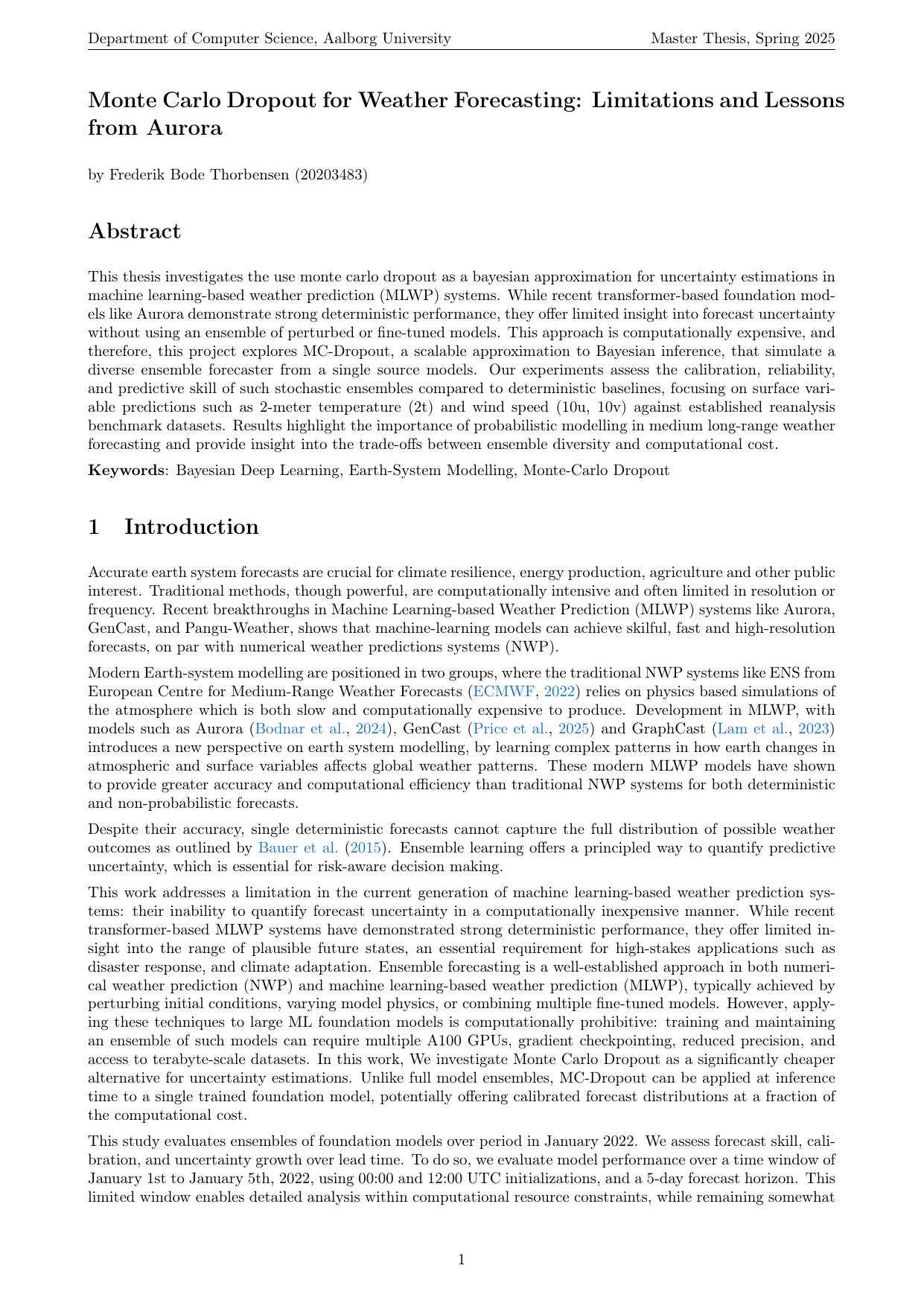
Monte Carlo Dropout for Weather Forecasting: Limitations and Lessons from Aurora
Author
Term
4. term
Education
Publication year
2025
Submitted on
2025-08-29
Abstract
This thesis investigates the use monte carlo dropout as a bayesian approximation for uncertainty estimations in machine learning-based weather prediction (MLWP) systems. While recent transformer-based foundation models like Aurora demonstrate strong deterministic performance, they offer limited insight into forecast uncertainty without using an ensemble of perturbed or fine-tuned models. This approach is computationally expensive, and therefore, this project explores MC-Dropout, a scalable approximation to Bayesian inference, that simulate a diverse ensemble forecaster from a single source models. Our experiments assess the calibration, reliability, and predictive skill of such stochastic ensembles compared to deterministic baselines, focusing on surface variable predictions such as 2-meter temperature (2t) and wind speed (10u, 10v) against established reanalysis benchmark datasets. Results highlight the importance of probabilistic modelling in medium long-range weather forecasting and provide insight into the trade-offs between ensemble diversity and computational cost.
Documents
